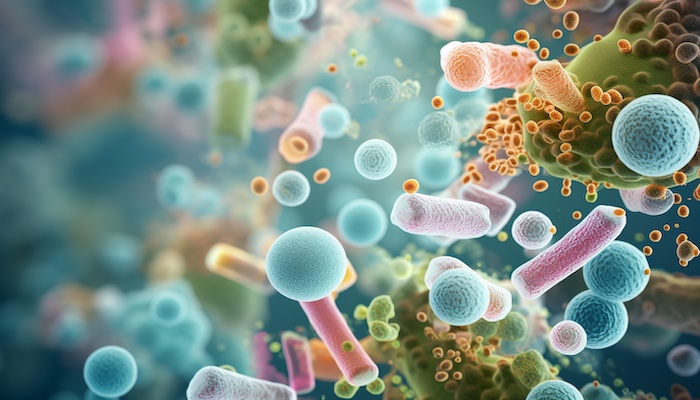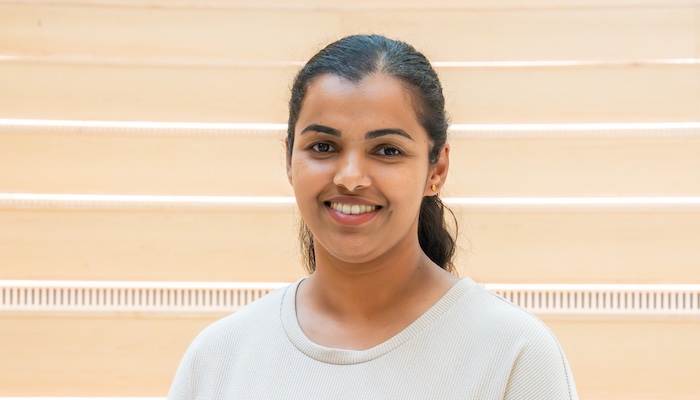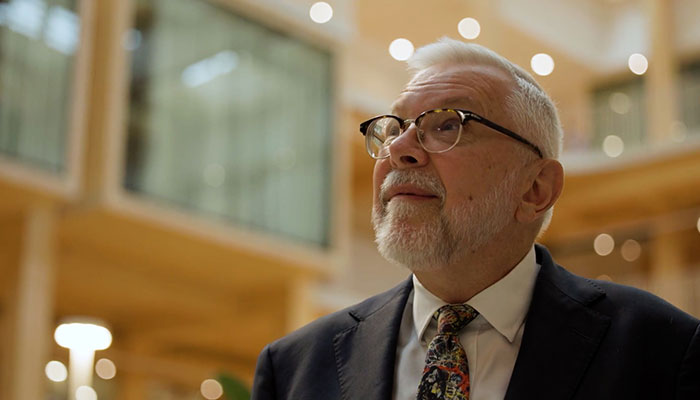Your digestive system, or gut, is home to thousands of microbial species that together form what’s known as the gut microbiome. These microscopic residents aren’t just passive hitchhikers – they play vital roles in keeping you healthy.
Here are five important facts you need to know about your gut microbiome:
1. Your gut is teeming with life
The gut microbiome consists of trillions of microorganisms, primarily bacteria, but also fungi, viruses and other microscopic life forms. Together, they form a complex ecosystem that helps your body function properly.

Internal ecosystem: Trillions of tiny microorganisms form a complex ecosystem in your digestive tract, assisting with everything from nutrient absorption to immune function.
“These microbes and the substances they produce help us digest our food, absorb energy and nutrients, support our immune system and even keep our brain healthy,” says Dr Gamage. “Our diet, lifestyle and overall health play a big role in how our gut microbiome is made up.”
Imbalance or disturbance in the gut microbiome is linked to a variety of health issues, including obesity, diabetes, arthritis, cancer and neurodegenerative diseases.
2. Your gut talks to your brain
There’s a communication pathway between your gut and your brain, often called the gut-brain axis. Information travels via a nerve connection called the vagus nerve and through chemical messengers produced by gut bacteria carried to your brain through the bloodstream.
This two-way communication system explains why stress can upset your stomach and why gut problems might affect your mood or thinking.
“In certain neurodegenerative diseases, such as Machado-Joseph disease, we have observed that microbial changes occur before any symptoms appear ,” says Dr Gamage. “We also know that the extent of the microbiome change is linked to how severe the symptoms are.”
Dr Gamage and her team are researching supplements containing molecules such as butyrate, which is produced when gut microbes digest dietary fibre. This natural substance may help protect brain cells and could even slow down or lessen the impact of brain diseases.
3. Most probiotics don't survive the journey through the stomach
You’ve probably seen probiotics – supplements that contain beneficial live bacteria – in the pharmacy or supermarket. These products are meant to boost gut health, but after passing through the highly-acid stomach area, many don’t reach your intestines alive.

Microbe detective: Dr Hasinika Gamage, pictured above, explores the complex relationship between gut bacteria and human health.
“That acidic, low pH kills a lot of bacteria,” says Dr Gamage. “There are also bile salts in the small intestine that our body uses to digest fat. Because the cell structure of bacteria is also made of lipids, or fats, they are attacked by these bile salts, too.”
Dr Gamage and her colleagues at FAAB are exploring ways to enhance probiotic survival rates. FAAB collaborates with industry partners so academic research can directly feed into product development.
“Working with industry is valuable because a lot of the work we do is on established products,” says Dr Gamage. “Our research helps our industrial partners develop better products, and that means the benefit to consumers via improvements or enhanced evidence-based claims happen more quickly.”
4. Different fibres feed different microbes
Prebiotics – dietary fibres that feed beneficial gut bacteria – are another common approach to improving gut health. However, not all prebiotics work the same way or benefit the same bacteria.
“We still don’t have a clear understanding of what prebiotics to use for which condition,” says Dr Gamage. “Various types of fibre have different impacts on the gut microbiome because each has its own chemical structures, so different microbes can use them as an energy source.”

Fibre Advantage: Fresh wholefoods can provide the dietary fibre that helps feed beneficial bacteria in your gut microbiome.
Part of FAAB’s work involves testing and comparing different fibre products already on the market. For example, it is currently comparing sugar cane-based fibres to similar products such as apple pomace and inulin, helping manufacturers create more targeted and effective products.
“We're trying to provide a framework for industry and for consumers, so they can know if a product works or what they should look for,” says Dr Gamage. “We look at how different products affect the microbiome, what the effect is and how we can make products better.”
5. Your microbiome is as unique as your fingerprint
While humans all share similar types of gut bacteria, the specific composition of your microbiome is highly individual. It’s influenced by factors including your genetics, diet, lifestyle, environment, medication use, and even experiences from early life such as your mode of delivery and infant feeding.
A one-size-fits-all approach to gut health often falls short, which is why personalised approaches to microbiome health are an emerging area of research. Dr Gamage says that microbiome research suggests there are two main treatment pathways.
“Current methods, which use probiotics and dietary fibres, actually work best as personalised medicine that is targeted to an individual’s microbiome,” says Dr Gamage.
The second direction includes more targeted approaches using specific molecules and innovative techniques such as phage therapy – using viruses that infect bacteria or synthetic microbes to make precise changes to the microbiome.
The big question is whether we can change our individual microbiome to help prevent or treat various conditions.
Dr Gamage's research at FAAB is helping to answer this question, with direct benefits for both industry and consumers.
Dr Hasinika Gamage is a postdoctoral research fellow at the Australian Research Council Training Centre for Facilitated Advancement of Australia's Bioactives (FAAB) in the School of Natural Sciences.
Dr Gamage will present a lecture titled Gut microbiome: Microbial friends within us on Wednesday 16 April at 6pm as part of Macquarie University’s 2025 Discover Lecture Series.
See event.mq.edu.au/discover-lecture-series



